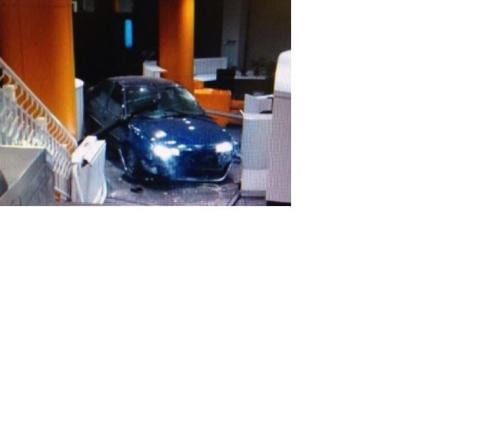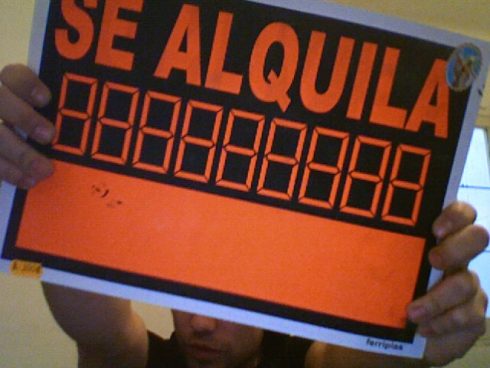Although the internet has changed the property business, just as it has many others, it looks like estate agents will still be around for a while. That’s not just good news for us, but also for clients
THE internet has been called the great disintermediator, enabling buyers and businesses to deal direct with one another, cutting the cost, time, and hassle of getting things done. In doing so, it has also cut countless industries to shreds. Think travel agents, insurance brokers, bookshops…
Now, some new start-ups in the US and the UK are betting that the real-estate business is next. And, let’s face it, of all the middlepeople most of us would wish to cut out of the picture, estate agents must be close to the top of the list.
The USP of the online business model is fixed-fee, rather than commission-based, payment, with the promise of thousands in potential savings, compared to ‘traditional’ agencies like ourselves. Sellers pay, up front, to list a property and buyers pay a price that includes the fixed fee.
Online agents claim they can charge less, and pass savings on to clients, because they don’t need to rent expensive high-street locations, employ staff, buy or lease cars, or even make calls. Clients communicate with them online or via a 24/7 call centre, located somewhere in the ether.
Most simply connect sellers and buyers, while some employ ‘nogents’ who work face-to-face with clients and show properties in person, but do so on a non-commission basis.
The one thing that unites them all is the bold claim that their business is the way forward and ‘traditional’ estate agents are a thing of the past.
For all the talk of the end of an era, two recent articles in The Economist reveal some interesting data about why our business remains about bricks and mortar, metaphorically speaking.
The latest, in November, noted that, despite the number of property websites out there, only 9% of US home sales in 2013 were done without an estate agent. Even more surprising was that the share has dropped since 2008, when it hit a high of just 13%.
Nor do online agencies appear to be putting too many old-school agents out of a job. In fact, in June, The Economist reported the number of people working for UK property firms rose by 16% in 2013, a faster growth rate than any other sector.
The data suggests most people still prefer to work with traditional agents, even if that means paying higher fees than offered online. While many look for properties online from the comfort of their own homes, when it comes to buying or selling, they demand the local knowledge and one-to-one service only a living, breathing agent can provide.
The UK’s leading property site, Rightmove, reported this September that online agents account for just 2% of listings, a tiny fraction of the market. Their research suggests sellers and landlords rely on agents with a local presence and rate this highly when assessing service and trust.
‘Traditional’ agents offer added value that online competitors cannot match. It may be the hours spent with sellers, talking about what makes their property special, or the kilometres in the car with buyers, looking for their dream home, but what we really offer is personal service.
Rather than replace traditional agencies, the internet adds value to an existing business model. More than 80% of server traffic at Inmoba, an Estepona-based industry network we use that lists 16,000 properties on the Costa del Sol, comes via Google, but 100% of their listings come from real-world real-estate agents, just like us.
If buying a home were that simple, Amazon would sell houses. But if you’re selling or buying what, for most of us, is the biggest asset we’ll ever own, we’d rather deal with a human being, even if he or she is an estate agent.









They get too much commission in Spain. In Scotland you can sell a house for a flat fee of £699.
They do themselves no favours in Spain by charging exorbitant sales commissions and purchase transaction figures are frankly a complete rip-off led by Government even for cheap properties percentage wise!
The problem is there are so many scams on the Internet. I would not deal with an Agent who didn’t have an established office/history. There are an awful lot of kitchen sink Agents in Spain, I wouldn’t use them, scary how easy it is for them to set up.
I have placed my rural property with several state agents. All of them do not deserve the outrageous commission fee. I have provided photos and description to the majority who could not be bothered to visit and take their own photos or write their own description, never mind advising on good/bad points and trying to match buyers to property. Rarely provide feedback after a viewing and generally unresponsive, not returning calls or emails. Very unprofessional and dissapointing.
I agree with the above comments and have said time and time again that the standard 5% commission in Spain is far too high. How can they justify charging so much for doing so little? Their business practices are very poor too and I think it looks utterly desperate when two lots of agents turn up with viewers – they should be able to trust each other to split the commission fairly.
In the UK the estate agents I deal with all charge between 1 and 1.5% + VAT, are far more professional, easier to get on with and they do actually sell your property for very close to the asking price – yes, that’s a novel idea!